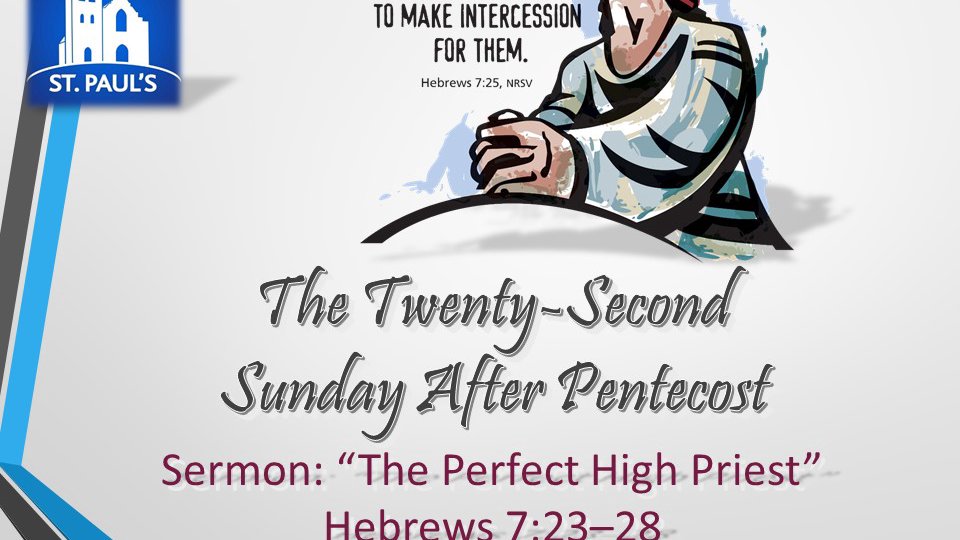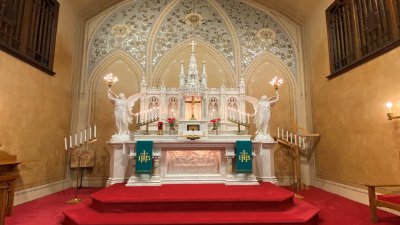In the first stanza of the hymn “Amazing Grace” we confess, “I once was lost but now am found, Was blind but now I see!” (LSB 744). When we say we were lost, we may think of the parable of the prodigal son. We mean that apart from God, like the rest of the world, we do not truly know our real spiritual need. Likewise, the blindness we confess is our condition apart from the enlightenment of God’s word and deliverance. Blind Bartimaeus in today’s Gospel, by the enlightenment of God’s Word, believed that Jesus as the “son of David” is the divine agent, the Son of God come to save. He had heard through Isaiah the prophet that one of the first things the Messiah will do would be to open blind eyes (Isaiah 35:5). With this blind man, we come today with the heartfelt prayer “have mercy on me” and discover more. Our eyes are enlightened to see God’s mercy as we join this man and Jesus’ disciples following Him in the way, on the road to Jerusalem. There we discover the mercy and gracious reign and rule of God in the mighty suffering, death, and resurrection of our Lord of life.

10/24/21 Praise Service
“The Perfect High Priest” Hebrews 7:23–28
October 24, 2021
04/21/24 Traditional Service
April 21, 2024
One of the small but interesting features of many cathedral and monastery churches in Europe and other places is presence of misericords. A misericord is a small wooden shelf attached to the underside of a folding seat in a church, often in the choir area. Misericords physically supported people at worship during long periods of standing during extended prayer and other services when sitting was not permitted. The term “misericord” means “pity of the heart.” That word is part of the church phrase Misericordia Domini, a Latin term for describing the acts of mercy of God to His people. Jesus, the Good Shepherd, constantly and consistently shows acts of mercy to us as His people. His care comes straight from the heart!
04/21/24 Praise Service
April 21, 2024
One of the small but interesting features of many cathedral and monastery churches in Europe and other places is presence of misericords. A misericord is a small wooden shelf attached to the underside of a folding seat in a church, often in the choir area. Misericords physically supported people at worship during long periods of standing during extended prayer and other services when sitting was not permitted. The term “misericord” means “pity of the heart.” That word is part of the church phrase Misericordia Domini, a Latin term for describing the acts of mercy of God to His people. Jesus, the Good Shepherd, constantly and consistently shows acts of mercy to us as His people. His care comes straight from the heart!
04/14/24 Praise Service
April 14, 2024
AS WE GATHER “Amazing” is a commonly used word in the English that has a rich history. It came into common usage in the 14th century as a variant of the older root word “amasod,” which meant stupefied or confounded or overwhelmed with sudden surprise or wonder. The word “amazing” shows up several times in hymns that we sing—from describing the action of God in the birth of Jesus as “love amazing” (LSB 375:1) to bringing to our hearts and minds that in His suffering to pay the price of our sins, our Lord showed “amazing pity” (LSB 437:2). Two other hymns refer to the “amazing grace” of God (LSB 744:1; 558:2), and in another hymn, the author of the text rejoices that God “has done amazing things to me” (LSB 934:2). The season of Easter is a time for us to be truly amazed and filled with the praise of our amazing Lord!





